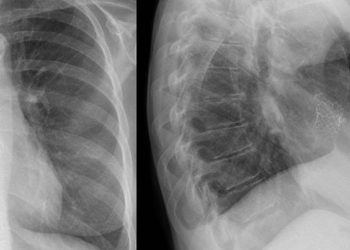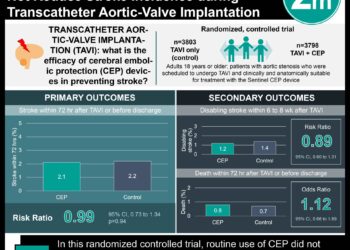72- and 36-hour fever prevention post-cardiac arrest equivalent in preventing mortality
1. In this randomized controlled trial, there was no significant difference in mortality between participants who received fever prevention for 36 versus 72 hours after cardiac arrest.
2. There was no significant difference in cognitive assessment or disability between participants who received fever prevention for 36 versus 72 hours at three months.
Evidence Rating Level: 2 (Good)
Study Rundown: Fever is a common occurrence amongst patients who suffer critical injuries. For example, this can occur in patients following cardiac arrest from a cardiac cause in the community that requires hospitalization and ventilation. It is thought that fever prevention is important amongst this population to reduce the likelihood of worsened neurologic injury, which can be propagated by fever. Although many guidelines recommend at least 72 hours of fever prevention following cardiac arrest, the strength of the evidence supporting this within existing literature is limited. As such, this randomized controlled trial investigated whether preventing fever for 72 hours was effective at reducing death and poor neurologic outcomes when compared to temperature control for 36 hours. The study found no significant difference in death or morbidity 90 days after participants were randomized and no difference in cognitive assessment scores or disability at three-month follow-up. This study is limited by its unblinded nature, high loss-to-follow-up, confounding, and low power to detect an effect. As such, further large-scale studies would be helpful to more clearly elucidate the effectiveness of the 72-hours recommendation within this population.
Click here to read the study in NEJM
In-Depth [randomized controlled trial]: This study was an unblinded randomized controlled trial conducted across two cardiac arrest centers in Denmark investigating the effectiveness of 72 hours of fever prevention at reducing morbidity and/or mortality amongst patients with resuscitated out-of-hospital cardiac arrest from a cardiac cause. Participants were included if they were comatose, had sustained return of spontaneous circulation (ROSC), and were admitted to the hospital. Participants were excluded from the study if they had unwitnessed asystole, suspected acute intracranial bleeding, or stroke. After applying the inclusion and exclusion criteria, 802 participants were randomly assigned in permuted blocks of 2, 4, and 6 to temperature control for 36 or 72 hours. The primary endpoint of interest was death from any cause or discharge from the hospital with a Cerebral Performance Category of 3-4 within 90 days after randomization. Secondary outcomes of interest were cognitive scores at 3 months, specifically, the Montreal Cognitive Assessment, the modified Rankin scale score, and CPC. The study found no difference in morbidity or mortality outcomes 90 days after randomization between participants with 72 hours of fever control and those with 36 hours (hazard ratio, 0.99; 95% Confidence Interval [CI], 0.77-1.26; p=0.70). Similarly, there was no significant difference between the two groups upon analysis of secondary outcomes at three months. In summary, this study suggests that maintaining at least 72 hours of fever prevention may not be significantly beneficial for patients of this population.
Image: PD
©2023 2 Minute Medicine, Inc. All rights reserved. No works may be reproduced without expressed written consent from 2 Minute Medicine, Inc. Inquire about licensing here. No article should be construed as medical advice and is not intended as such by the authors or by 2 Minute Medicine, Inc.







